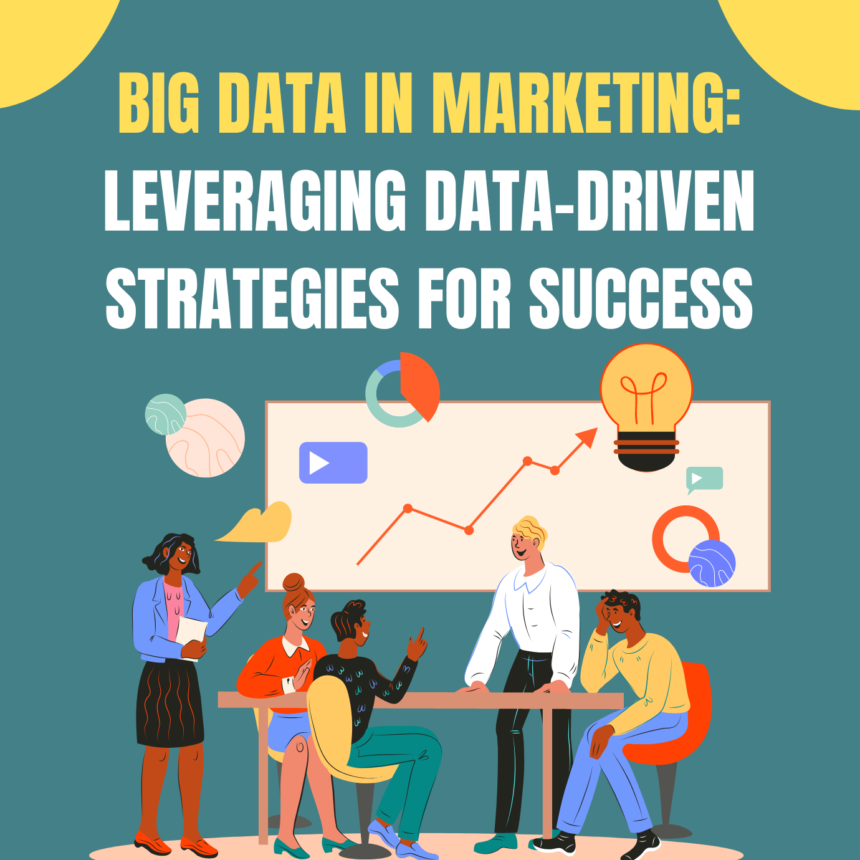In the digital era, big data has become a game-changer for marketers, enabling them to make more informed decisions, optimize campaigns, and drive business success. By leveraging vast amounts of customer data, marketers can gain valuable insights into consumer behavior, preferences, and trends. Let’s explore how big data is transforming marketing strategies and driving success in today’s data-driven landscape:
1. Customer Segmentation and Targeting: Big data analytics enables marketers to segment their customer base more effectively and target specific customer segments with personalized messages and offers. By analyzing customer data, including demographics, purchase history, and online behavior, marketers can identify distinct customer segments and tailor their marketing strategies to meet their unique needs and preferences.
2. Personalization and Customer Experience: Big data empowers marketers to deliver personalized experiences to customers, enhancing customer satisfaction and engagement. By analyzing customer data and leveraging real-time insights, marketers can personalize marketing messages, website content, and product recommendations based on individual preferences. Personalization improves customer experience, increases customer loyalty, and drives higher conversion rates.
3. Predictive Analytics and Forecasting: Big data analytics allows marketers to predict customer behavior, market trends, and campaign outcomes. By analyzing historical data and using predictive modeling techniques, marketers can forecast future demand, identify potential opportunities, and make data-driven decisions. Predictive analytics helps optimize marketing strategies, allocate resources effectively, and maximize return on investment.
4. Marketing Campaign Optimization: Big data plays a crucial role in optimizing marketing campaigns. Marketers can analyze campaign performance data, including click-through rates, conversion rates, and customer engagement metrics, to identify areas for improvement and make real-time adjustments. Big data analytics enables marketers to optimize campaign targeting, messaging, and creative elements to enhance campaign effectiveness and drive better results.
5. Customer Journey Analysis: Big data analytics helps marketers gain a comprehensive understanding of the customer journey, from initial touchpoints to conversion and beyond. By analyzing customer data across multiple channels and touchpoints, marketers can identify key touchpoints, understand customer preferences, and optimize the customer journey. This allows marketers to deliver a seamless and personalized experience throughout the entire customer lifecycle.
6. Social Media Listening and Sentiment Analysis: Big data analytics enables marketers to monitor social media platforms and analyze customer sentiment. By tracking social media conversations and sentiment analysis, marketers can gain insights into customer opinions, preferences, and brand perception. This helps marketers identify emerging trends, engage in real-time conversations, and respond to customer feedback effectively.
7. Real-Time Data Analysis and Optimization: Big data analytics enables real-time data analysis, allowing marketers to monitor campaign performance, website traffic, and customer behavior in real-time. By leveraging real-time insights, marketers can make immediate adjustments to campaigns, optimize website content, and deliver timely offers to customers. Real-time data analysis ensures agile decision-making and enables marketers to stay responsive to changing market dynamics.
8. Customer Retention and Loyalty: Big data analytics helps marketers identify factors that contribute to customer retention and loyalty. By analyzing customer data, including purchase history, customer feedback, and engagement metrics, marketers can identify loyal customers, understand their preferences, and implement targeted retention strategies. Big data analytics allows marketers to build strong customer relationships, improve customer satisfaction, and foster long-term loyalty.
9. Competitive Intelligence: Big data analytics provides valuable insights into the competitive landscape. Marketers can analyze competitor data, market trends, and industry benchmarks to gain a competitive advantage. By understanding market dynamics, customer preferences, and competitor strategies, marketers can fine-tune their marketing campaigns, differentiate their offerings, and stay ahead of the competition.
10. Marketing Attribution and ROI Analysis: Big data analytics enables marketers to measure the effectiveness of their marketing efforts and attribute success to specific campaigns or
channels. By analyzing data on customer interactions, conversions, and revenue, marketers can assess the return on investment (ROI) of their marketing initiatives. Big data analytics allows marketers to allocate resources effectively, optimize marketing spend, and demonstrate the impact of marketing activities on business outcomes.
By leveraging big data analytics, marketers can gain valuable insights into consumer behavior, personalize marketing efforts, optimize campaigns, and drive business success. As technology continues to advance and data availability grows, the role of big data in marketing will only become more critical for staying competitive and achieving marketing goals in the dynamic and data-driven landscape.
